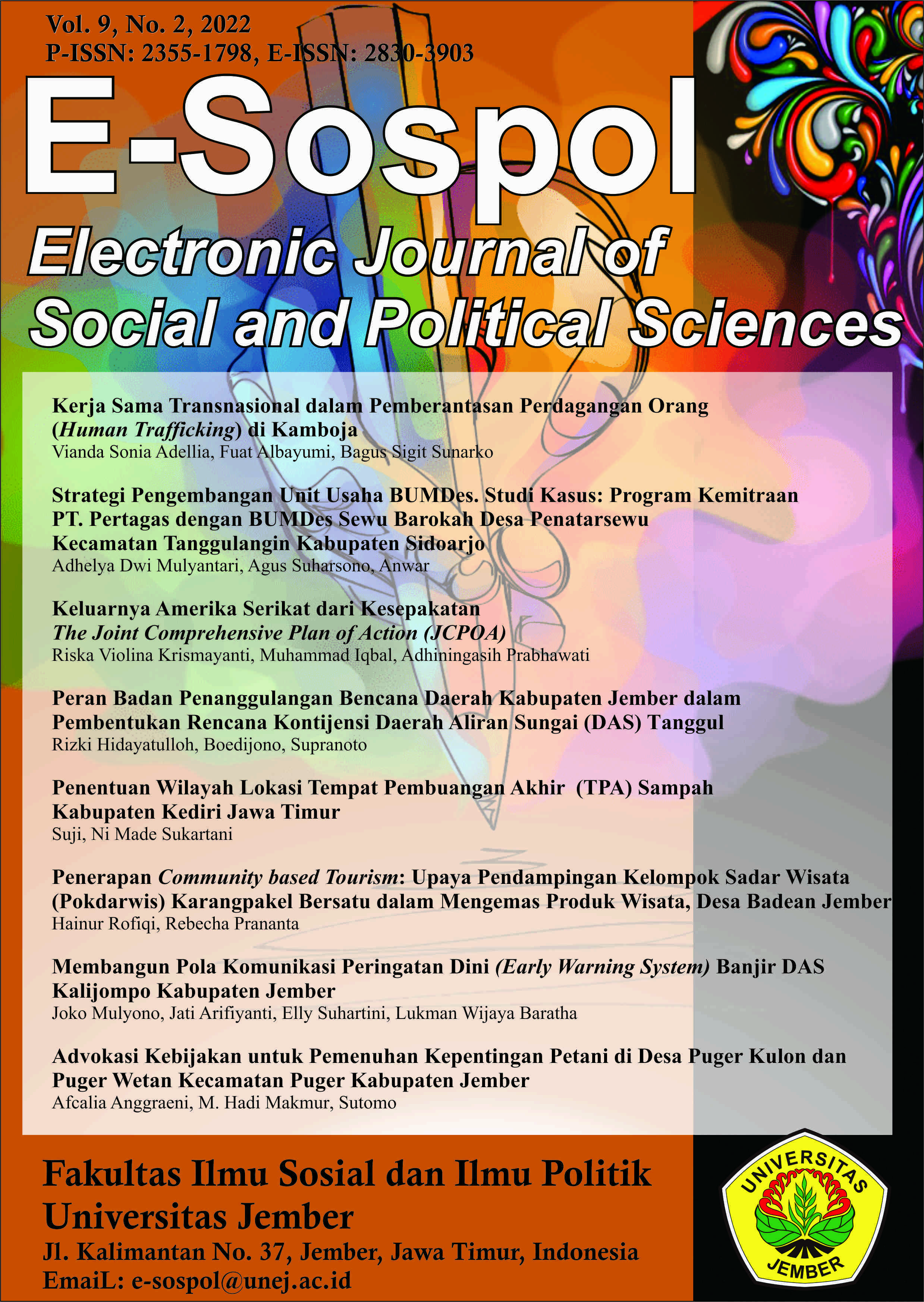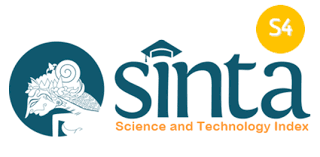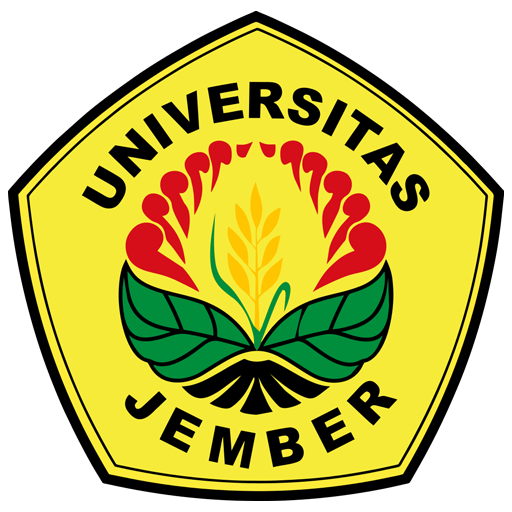Kerja Sama Transnasional dalam Pemberantasan Perdagangan Orang (Human Trafficking) di Kamboja
DOI:
https://doi.org/10.19184/e-sos.v9i2.32067Abstract
Cambodia as a country with a low human development index still has to deal with the high number of trafficking cases in the country. Although Cambodia and two international nongovernmental organizations (INGOs), namely The Asia Foundation and the International Justice Mission (IJM) have collaborated to combat human trafficking in the country, these efforts so far have not shown maximum results. This research was also conducted to reveal what are the faktors that hinder the achievement of transnational cooperation goalsto combat human trafficking in Cambodia. This study uses several concepts such as poverty, low education, corruption, and other social and cultural faktors as domestic faktors that hinder the eradication of human trafficking. Meanwhile the theory used is the Theory of Stages of Norm Internalization from Martha Finnemore and Kathryn Sikkink and Theory of Transnational Relations and Domestic Structure from Thomas Risse-Kappen. On the other hand, the data collection technique in this research is literature study and for the data analysis technique, the researcher uses stages consisting of data condensation, data display, and conclusion drawing.Based on the analysis in this study, the causes of transnational cooperation got hinderedin combating human trafficking are divided into indirect causes which include the lack of a strong internalization process for human rights norm in Cambodia as a result of state-controlledcountry and direct causes which include poverty in the country, low education, corruption in law enforcement related to the eradication of human trafficking, as well as other social and cultural faktors in the form of debt bondage and lack of job opportunities in Cambodia.
Downloads
Downloads
Published
Issue
Section
License
Penulis yang mengusulkan naskahnya untuk dapat diproses penerbitannya pada e-SOSPOL dianggap telah menyetujui beberapa hal sebagai berikut:
1. Penulis tidak dapat menarik naskah yang telah usulkan untuk diproses hingga mendapat jawaban dari Ketua Dewan Penyunting atas status naskah artikel ilmiahnya (diterima atau ditolak untuk diterbitkan).
2. Penerbit tidak bertanggung jawab terhadap kasus plagiasi atas artikel yang terbit pada e-SOSPOL
3. Penerbit tidak bertanggung jawab atas data dan isi dari artikel yang diterbitkan pada e-SOSPOL, dan sepenuhnya merupakan tanggung jawab penulis.








